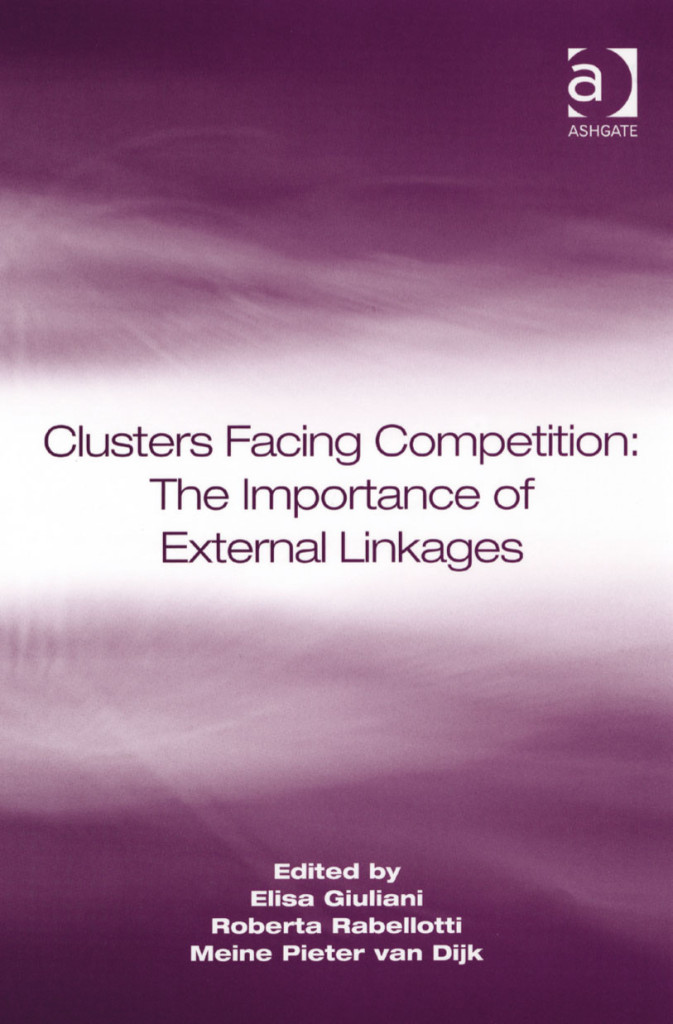DG Enterprise and Industry, European Commission, Brussels.
My keynote speech at the Final Conference of the Sectoral Innovation Watch.
Download the pdf, Pres Brussels 2011-02
in Presentations Tags: Emerging Countries, Global Value Chain, Innovation

My keynote speech at the Final Conference of the Sectoral Innovation Watch.
Download the pdf, Pres Brussels 2011-02
in Journal Articles, Publications Tags: Emerging Countries, FDI, MNEs
One of the more recent aspects of the globalization process is the rise and the increasing outward expansion of multinational enterprises (MNEs) from developing countries. Among the more promising effects of this phenomenon is a potentially positive development impact: through outward foreign direct investment (OFDI) developing country MNEs acquire new knowledge, which contributes to the technological catch-up of their home countries. This paper reviews the recent literature on OFDI from developing countries, with a critical focus on the theory and evidence of FDI as a channel for technological catch-up. This literature suggests that the features and global business environment of current emerging country MNEs is different from those of latecomer firms in earlier decades. Modularity of production in an increasing number of sectors, combined with weak national innovation systems (NIS) in many developing countries explain why the sourcing of strategic assets – including technology and innovation – from abroad through OFDI has become such an important channel for technological catch-up.
in Journal Articles, Publications Tags: Emerging Countries, Global Value Chain, Innovation
It presents a critical review of the Global Value Chain literature in light of the “Technological Capabilities” approach to innovation in LDCs. Participation in GVC is beneficial for firms in LDCs, which are bound to source technology internationally. However, the issues of learning and technological efforts at the firm-level remain largely uncovered by the GVC literature.
We propose a shift in the empirical and theoretical agenda, arguing that research should integrate the analysis of the endogenous process of technological capability development, of the specific firm-level efforts and of the mechanisms allowing knowledge to flow within and between different global value chains into the GVC literature.
in Articles, Media Tags: Argentina, Catch up, Chile, Emerging Countries, Innovation, Italy, South Africa, Wine industry
Richard Feimberg reviewed my book edited with Pietrobelli.
in Books, Publications Tags: Clusters, Emerging Countries, Global Value Chain, Innovation, Small and Medium Enterprises

The book is a collection of papers on clusters in developing countries. The book explores the external sources of industrial cluster competitiveness and examines how they complement, integrate and substitute local, intra-cluster networks. The novelty of this book is to merge the cluster approach with two other conceptual approaches which have become increasingly popular in cluster and development studies: on the one hand, the Global Value Chains and their role in cluster upgrading processes; on the other, the National Systems of Innovation (NSIs) and their role in supporting the development of clusters in a national territory. The book explores these issues with empirical evidence from different countries in Latin America, Asia and the industrialized world.
«This book provides numerous and timely insights into new strategies for enhancing the competitiveness of firms and local clusters in the global economy. Replete with in-depth case studies across a broad range of industries and countries, this volume is must reading for anyone seeking to identify pragmatic as well as effective responses to the challenges of international competition today.»
Gary Gereffi,
Professor, Duke University, Durham, NC / USA
You can buy the book here